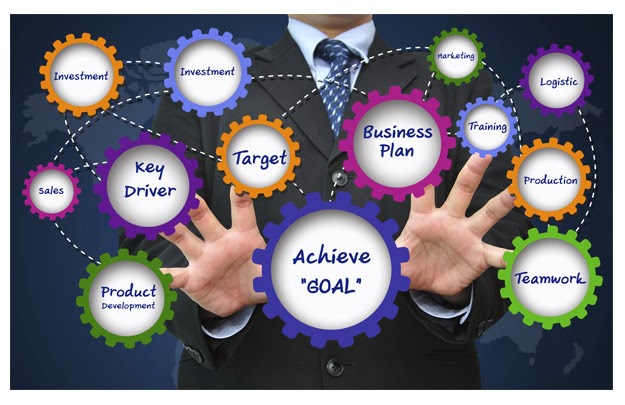Discover the Tricks to Effective Occasions Administration With Comprehensive Services Offered
Successful occasions management needs a critical approach. It involves understanding occasion objectives, selecting the appropriate place, and efficient budgeting. In addition, effective marketing and smooth logistics play important roles. Engaging attendees via interactive experiences can raise the general influence. Nevertheless, evaluating success and Event responses is just as crucial. Each aspect interconnects to develop remarkable events. What are the vital components that absolutely make an occasion stand apart?
Comprehending Your Event Objectives
Plainly specifying occasion goals is necessary for effective event management. Developing clear objectives offers a structure for all preparing activities and decision-making processes. Occasion planners have to recognize the purpose of the event, whether it is to inform, commemorate, or advertise a product or solution. This understanding shapes every facet, from the target audience to the budget allocation.
In enhancement, particular purposes help with efficient interaction among stakeholders, making certain that everyone is straightened towards an usual vision. By verbalizing measurable results, planners can review success post-event, permitting regular improvement. In addition, a well-defined unbiased assists in focusing on tasks and resources, improving initiatives towards achieving preferred results. Overall, comprehending occasion objectives is not simply a rule; it is a fundamental component that drives the success of any occasion, greatly affecting its total impact and efficiency.
Picking the Right Place for Your Occasion
Picking the ideal venue is necessary for an occasion's success. Key elements to take into account include the location's ability to accommodate guests, its ease of access for guests, and the overall atmosphere that straightens with the event's style. By carefully evaluating these aspects, event planners can create an unforgettable experience that meets their goals.
Assessing Venue Capacity Requirements
Selecting the proper place for an event hinges on a complete analysis of ability requirements. Occasion organizers must first determine the expected number of attendees, as this greatly influences location option. A place that is as well small can result in congestion, while one that is exceedingly large may reduce the occasion's environment. Planners must additionally take into consideration the sort of event, as different gatherings need different spatial plans, such as classroom, movie theater, or reception arrangements. Furthermore, it is vital to make up additional area for staging, audio-visual tools, and catering solutions. By examining these variables, occasion managers can guarantee that the picked venue not only fits guests pleasantly however also enhances the general experience for every person involved.
Place Ease Of Access and Logistics
While the location's capacity plays an important duty in event preparation, its accessibility and logistics are similarly vital for guaranteeing a successful gathering. A well-chosen place must be easily reachable by numerous transportation methods, consisting of public transportation, taxis, and auto parking centers. This ease of access allows attendees to get here without headache, enhancing their general experience. In addition, the place's layout must help with smooth movement, particularly for those with wheelchair obstacles. Logistical factors to consider, such as setting up audio-visual devices and food catering solutions, should also be factored in to avoid disruptions. Ultimately, focusing on accessibility and logistics not only promotes a welcoming atmosphere but additionally contributes considerably to the occasion's success and guests' satisfaction.
Ambiance and Aesthetic Charm
The setting and aesthetic appeal of a venue play an essential duty in establishing the tone for an occasion, affecting participants' emotions and overall experience. A well-chosen location enhances the thematic components of the celebration, whether it's a company celebration, wedding celebration, or social event. Variables such as design, decoration, and illumination add substantially to developing a welcoming environment. A historical structure might evoke nostalgia, while a modern-day area can inspire technology. In addition, the location's environments, including sights and outdoor rooms, can additionally elevate the experience. Inevitably, selecting a venue that aligns with the occasion's purposes and desired state of mind is necessary for effective events monitoring, guaranteeing that visitors entrust long-term impacts and memories.
:max_bytes(150000):strip_icc()/event-management-vs-event-planning-whats-the-difference-4022871-v3-5be9a8e146e0fb0051db23eb.png)
Budgeting: Allocating Resources Efficiently
Effective budgeting is important for effective occasion administration, as it guarantees that sources are designated in a way that optimizes effect while decreasing waste. Establishing a thorough budget plan involves determining all prospective prices-- location, food catering, amusement, and logistics-- to create a realistic financial framework. By reviewing the priorities and objectives of the occasion, managers can allot funds properly, guaranteeing important aspects receive sufficient investment.
Normal monitoring of expenses throughout the preparation procedure is essential to remain within budget plan and make essential adjustments. Making use of devices such as spread sheets or budgeting software can improve this procedure, enabling real-time tracking and forecasting. Engaging in arrangements with vendors can lead to set you back savings without endangering top quality. Eventually, efficient resource appropriation via thorough budgeting adds to the overall success of an occasion, producing unforgettable experiences while sticking to economic restrictions.

Marketing Your Occasion Properly
Reliable advertising is essential for the success of any kind of occasion, starting with the identification of the target market. Utilizing social media systems permits wider reach and engagement, while creating compelling content captures passion and motivates involvement. Together, these approaches create a foundation for impactful occasion promotion.
Target Audience Identification

Social Media Site Promotion
Social network serves as an effective tool for event promo, making it possible for organizers to reach a large audience with minimal cost. By leveraging platforms such as Facebook, Twitter, Instagram, and LinkedIn, event managers can develop targeted campaigns that get in touch with possible attendees. These systems enable the sharing of occasion information, updates, and involving visuals, which can considerably raise visibility. Hashtags and collaborations with influencers better improve outreach efforts, bring in diverse demographics. In addition, social media facilitates real-time communication, enabling organizers to react to questions and comments promptly. This instant engagement cultivates a feeling of community and expectancy bordering the occasion, inevitably contributing to higher attendance rates and a successful event management approach.
Involving Web Content Production
Developing interesting web content is essential for marketing an event successfully, as it captivates the target market and encourages involvement. Quality material can take various kinds, including article, videos, infographics, and social media sites updates. Each piece ought to convey the event's worth, highlighting vital speakers, tasks, and special experiences. Uniformity across platforms enhances brand recognition and fosters target market trust fund.
Incorporating narration methods can stimulate emotions, making the event a lot more attractive and relatable. Utilizing clear contact us to action triggers prospective guests to register or share information with others. Furthermore, leveraging user-generated web content, such as endorsements or photos from previous occasions, can boost authenticity and create a sense of area. Ultimately, engaging content is a cornerstone of successful event advertising and marketing techniques.
Logistics: Guaranteeing Smooth Operations
Logistics is the foundation of successful occasion monitoring, making sure that every detail aligns seamlessly to produce a memorable experience. This necessary aspect includes various aspects, consisting of location selection, transport, devices purchase, and on-site coordination. Efficient logistics planning starts long before the occasion day, needing thorough organizing and resource allotment.
An efficient logistical structure helps with smooth communication among suppliers, team, and guests, reducing prospective interruptions. This consists of handling timelines for setup, making sure that audiovisual devices is practical, and collaborating providing solutions. In addition, contingency plans should be in location to resolve unforeseen situations, such as severe weather condition or technological failings.
Involving Participants Via Interactive Experiences
How can occasion coordinators change a traditional Event into an unforgettable experience? By incorporating interactive elements that involve attendees on several degrees. This may include hands-on workshops, live demos, or immersive modern technology such as digital reality. These tasks not just promote interest however additionally foster networking opportunities among individuals.
Coordinators can utilize gamification methods, where participants compete in tests or challenges connected to the event's theme. Such activities boost interaction and make the experience much more unforgettable. In addition, integrating audience action systems enables real-time feedback and interaction, which can make participants feel extra purchased the event.
Developing rooms for informal discussions, such as lounges or outbreak areas, even more urges interaction. By focusing on these interactive experiences, event organizers can cultivate a vibrant ambience, making sure participants entrust lasting impressions and valuable links, eventually raising the total success of the occasion.
Evaluating Event Success and Event Responses
After promoting an interesting atmosphere via interactive experiences, evaluating the event's success comes to be important. This procedure involves gathering quantitative and qualitative data to assess guest fulfillment and overall impact. Studies and feedback kinds are vital devices, allowing participants to reveal their opinions on different facets, such as content significance, audio speaker effectiveness, and logistical arrangements.

Evaluating presence metrics, interaction Discover More Here levels, and social networks interactions also gives crucial insights. This information enables occasion coordinators to recognize weak points and strengths, promoting educated decisions for future occasions. Furthermore, follow-up meetings with essential stakeholders can uncover deeper point of views on the occasion's efficiency.
Eventually, collecting responses not just gauges success but also cultivates a culture of continual improvement. By prioritizing assessment, event managers can boost their approaches, making certain that each Event exceeds or satisfies individual expectations while accomplishing business goals. This commitment to representation strengthens the foundation for future successful occasions.
Often Asked Concerns
What Are the Important Abilities for an Event Supervisor?
Essential abilities for an event manager consist of solid communication, organizational capacities, problem-solving aptitude, time monitoring, creative thinking, budgeting expertise, leadership qualities, and adaptability - Charlotte Event Companies. These abilities make it possible for efficient coordination and implementation of effective events across different setups
Exactly How Can Modern Technology Enhance Occasion Management Solutions?
Innovation improves occasion administration solutions by improving preparation processes, promoting interaction, automating jobs, and giving data analytics. These advancements allow occasion managers to enhance efficiency, engage participants, and create tailored experiences, ultimately causing successful occasions.
What Licenses or Licenses Are Usually Required for Occasions?
Usually, events need authorizations such as public assembly, alcohol licenses, health and wellness and safety permits, and sound authorizations. Requirements vary by area, occasion type, and dimension, necessitating cautious preparation to assure compliance with regional regulations.
Exactly how Do You Take Care Of Unforeseen Challenges Throughout an Event?
To handle unforeseen difficulties throughout an occasion, reliable organizers keep adaptability, communicate promptly with groups, and devise contingency strategies - Charlotte Event Companies. Quick problem-solving and adaptability guarantee that interruptions are handled effectively, reducing effect on the event's success
What Are the Best Practices for Post-Event Follow-Up?
Post-event follow-up finest practices include sending out thank-you notes, collecting responses with studies, evaluating event success metrics, and sharing highlights on social media sites. This technique cultivates partnerships and help in the preparation of future occasions.
Plainly specifying occasion objectives is vital for effective occasion management (Charlotte Event Companies). Event organizers need to identify the function of the event, whether it Check This Out is to inform, commemorate, or promote a product or solution. Occasion coordinators should first determine the anticipated number of guests, as this considerably influences venue selection. Incorporating storytelling techniques can evoke feelings, making the event extra attractive and relatable. Generally, occasions call for authorizations such as public setting up, alcohol licenses, health and safety and security authorizations, and noise permits